One of the few positive stories to emerge from the current crisis is the way in which engineering organisations of varying sizes and from a host of different sectors have come together to design, develop and produce key items of medical equipment for the NHS. The Engineer asked three of those companies at the forefront of this historic national effort - Jaguar Land Rover, Renishaw and Protolabs - about what they’ve achieved, the challenges they have faced, and the lessons that they have learned.
Meet the experts
Ben Wilson – Additive Manufacturing and Prototype Design Manager, Jaguar Land Rover
Marc Saunders – Director of Group Strategic Development, Renishaw and Executive Team Member at VentilatorChallengeUK
Lee Ball – General Manager, Protolabs
What role has your organisation been playing in the engineering response to the Covid-19 crisis?
 Ben Wilson: In April, Jaguar Land Rover began producing reusable, NHS-approved 3D-printed protective visors for key workers, utilising our Computer Aided Design (CAD) and 3D printing expertise to help provide vital equipment. This was in response to a national shortage of Personal Protective Equipment (PPE) for NHS frontline staff in the fight against Covid-19. Many key workers were suffering injury from wearing uncomfortable equipment for long hours or going without vital protective wear. The face visors we created are designed to be reusable, easily dismantled and cleaned before being used again and will help to safeguard the NHS Trusts against future shortages. We are now scaling up production which has enabled us to go from producing around 2,000 visors a week to 14,000 per week.
Ben Wilson: In April, Jaguar Land Rover began producing reusable, NHS-approved 3D-printed protective visors for key workers, utilising our Computer Aided Design (CAD) and 3D printing expertise to help provide vital equipment. This was in response to a national shortage of Personal Protective Equipment (PPE) for NHS frontline staff in the fight against Covid-19. Many key workers were suffering injury from wearing uncomfortable equipment for long hours or going without vital protective wear. The face visors we created are designed to be reusable, easily dismantled and cleaned before being used again and will help to safeguard the NHS Trusts against future shortages. We are now scaling up production which has enabled us to go from producing around 2,000 visors a week to 14,000 per week.
Marc Saunders: Renishaw responded to the UK Government’s challenge to rapidly supply medical ventilators to the NHS. We judged that our best contribution would be to help existing device manufacturers to ramp up their production and soon realised that many other companies were thinking the same way. We formed the VentilatorChallengeUK (VCUK) consortium with leading aerospace, automotive, medical devices and motorsport companies, and have worked together to super-scale production of a critical care ventilator designed by Penlon, and a mobile ventilator designed by Smiths Medical.
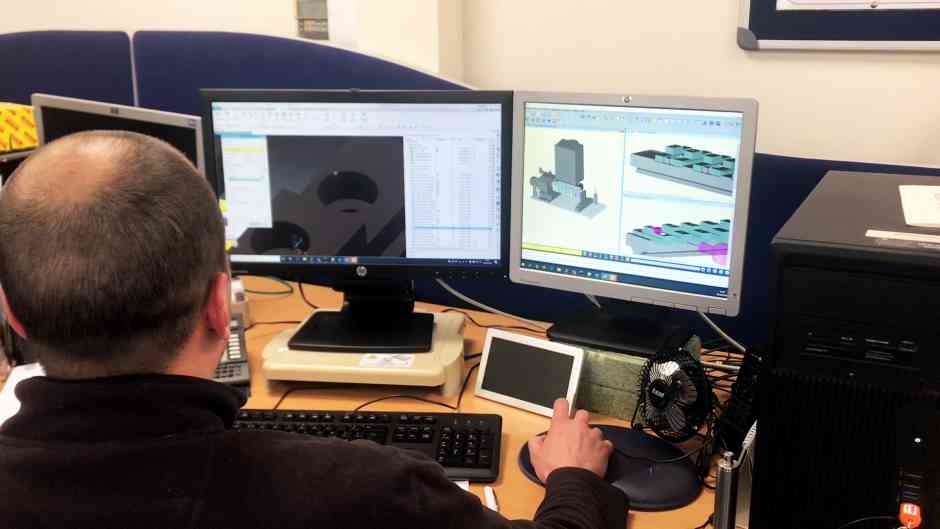
Within this context, Renishaw has focused on mass production of metallic components for both devices in our factories in Gloucestershire and South Wales. Over the last month, Renishaw has manufactured 115,000 precision machined ventilator components, deploying 30 automated CNC machine tools. In doing so, we have consumed more than 5 km of metal bar stock – the length of 50 football pitches – weighing around 25 tonnes – the weight of five African elephants.
 Lee Ball: Protolabs has played a key role in the engineering response to support the frontline fight against Covid-19.
Lee Ball: Protolabs has played a key role in the engineering response to support the frontline fight against Covid-19.
Giving customers ‘speed to market’ at this challenging time is absolutely critical and our outstanding team of designers, engineers and production specialists have risen to the task, going above and beyond to deliver critical parts, often ahead of schedule.
We have worked on a number of projects relating to the pandemic, but some of the most high-profile ones that have hit the headlines include:
- 3D printing of ‘Charlotte’ and ‘Dave’ valves to convert snorkelling equipment into ventilator mask for emergency use in Italian hospitals
- Injection moulding of parts for a CPAP system for Covid-19 patients, designed by Mercedes-AMG High Performance Powertrains and University College London
- Injection moulding of cassettes for Covid-19 testing kits, designed by AusDiagnostics
What are the key challenges that you have faced and how did you overcome these?
BW: We knew we needed to be flexible and respond to changing conditions quickly during these unprecedented times. In the design phase, it was vital to work closely with healthcare professionals to get their direct feedback, so improvements could be made to the design before production.
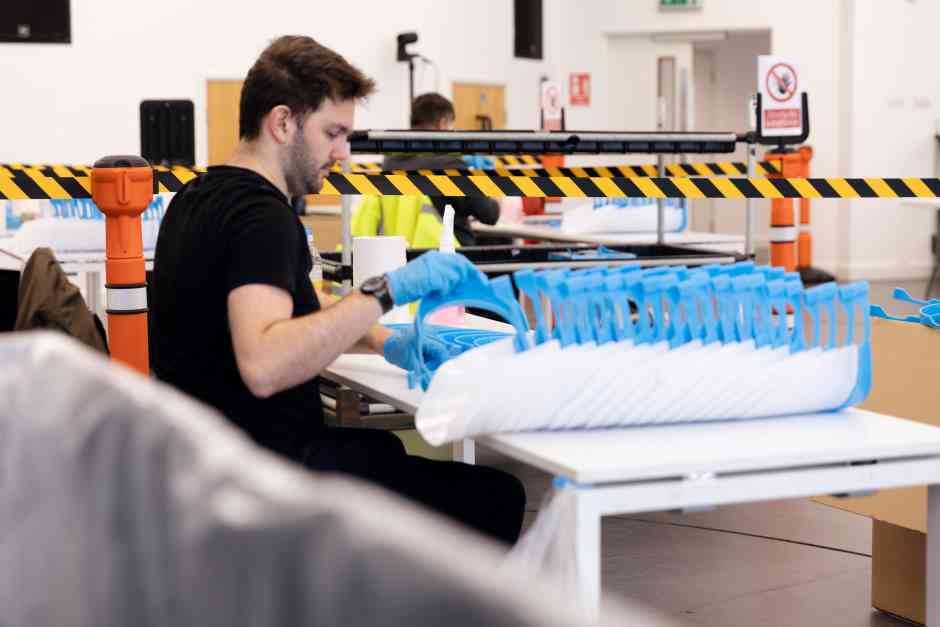
The visors were designed to meet the specifications given by healthcare professionals and adapted for manufacture via 3D printing. Using this method, Jaguar Land Rover’s ambition was to produce 1,300 visors per week at its Gaydon-based Additive Manufacturing Centre. Through collaboration with local companies such as Matsuura UK in Coalville, this amount grew to 5,000 visors each week which could be distributed to NHS Trusts across the country.
Additive Manufacturing is best suited to small complex parts that can be made efficiently and cost-effectively without designing additional tooling. However, when extremely high quantities of the same simple part are required then traditional manufacturing methods become more suitable.
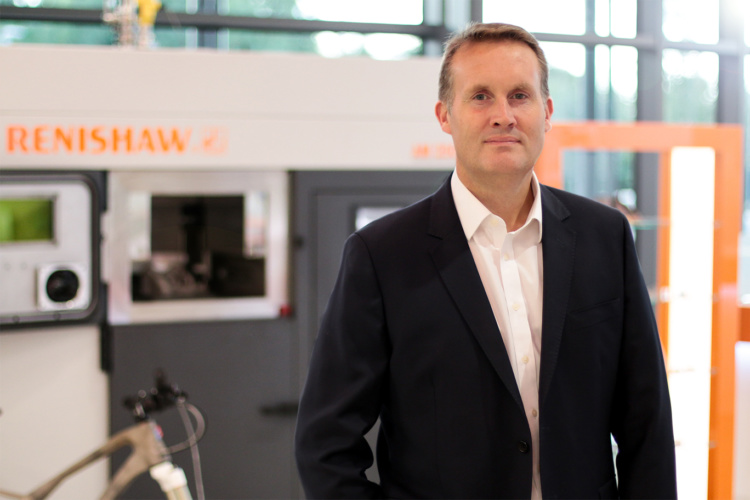 MS: Working with government, VCUK quickly settled on the two devices that would meet the NHS’s clinical specification and made our plans to ramp up production, establishing a new, parallel supply chain for each. We have had to achieve all this whilst also implementing safe working practices within both new and existing factories. Certification of device modifications to meet the particular needs of Covid-19 treatment was fast-tracked through close liaison with the medical regulator (MHRA).
MS: Working with government, VCUK quickly settled on the two devices that would meet the NHS’s clinical specification and made our plans to ramp up production, establishing a new, parallel supply chain for each. We have had to achieve all this whilst also implementing safe working practices within both new and existing factories. Certification of device modifications to meet the particular needs of Covid-19 treatment was fast-tracked through close liaison with the medical regulator (MHRA).
READ THE ENGINEER'S INTERVIEW WITH VCUK CHIEF DICK ELSY
Each VCUK member has a clear role – ours was machining, whilst other members focused on assembly, test equipment, regulatory approval and supply chain management. At Renishaw we deployed an experienced engineering team, analysing the bill of materials and working 7 days a week to program and qualify new machining processes. We diverted some of our flexible machining capacity and were producing parts at volume within a week.
LB: As the world’s fastest digital manufacturer, Protolabs is set up to deliver parts quickly, so meeting rapid turnaround times is something that we are used to.
Whilst we always keep a large stock of key materials, we did take swift action with our supply chain before the situation became critical to ensure stock continues to feed into production.
In addition, our additive manufacturing technologies are among the best in the world and we have access to more than 300 CNC and injection moulding machines at our European HQ in Telford. All of this gives us plenty of capacity to ramp up for sudden orders and continue providing the support our customers need.
Adhering to strict social distancing guidelines, whilst maintaining our high levels of productivity, has been a challenge, but the teams within Protolabs have responded well to the new conditions. Staff not required on our sites have been working from home, which has freed up the space required to help keep all our employees safe.
Our production team has put in place strict measures and consulted regularly with the staff, so that they understand the rules and processes. Their response has been fantastic. From day one, they showed a willingness and commitment to ‘doing their bit’ to support the fight against Covid-19 and this has seen them work additional hours.
Were there any particular enabling technologies that helped you to meet the challenges you faced?
BW: 3D printing is the ideal technology to react quickly in times like these as it does not require lengthy processes to develop tooling. Parts can be made in hours rather than days or weeks. This agility allows us to speed up the development of a product like no other process. The state-of-the-art 3D printing resources here at the Jaguar Land Rover Additive Manufacturing Centre were dedicated to supporting this activity which meant that within a few days we had high quality, fit-for-purpose face shields ready to dispatch.
Despite machines running 24/7 the demand soon outgrew our capacity. We needed to find a way to industrialise the process further, so we could increase the volumes produced.
Using new injection mould tooling, developed by WHS Plastics, we can produce a further 14,000 visors each week for key workers across the UK. The team is producing more than 2,000 visors per day – with one polypropylene headband generated every 30 seconds.
Injection mould technology comes with its own design for manufacturing requirements. The 3D design required some minor adjustment to suit the process and we took this opportunity to include further user feedback received from frontline NHS staff. The visors now come with an adjustable strap made from a high-quality silicone which can be completely removed for cleaning.
MS: Ventilator component machining was performed on a combination of sliding head lathes and our own automated RAMTIC (Renishaw’s Automated Milling, Turning and Inspection Centre) machining centres. These feature automated work handling and integrated in-cycle probing to enable productive 24x7 operation. Standardised tooling and proven fixturing concepts enabled rapid process prove-out and ramp up to volume production within a few days.
Coordinating the activities of around 20 consortium members, who are working on multiple workstreams at dozens of different locations, has required extensive use of modern collaboration software tools. VCUK has used Microsoft Teams to hold daily meetings and to share critical information at a consortium level, whilst Renishaw has also made use of these tools to manage its project teams, many of whom have never met face-to-face throughout the whole project.
LB: Our unique design and manufacturing process means the customer can upload their CAD models to our secure portal, then receive the parts without stepping foot in our facility - sometimes just days after upload.
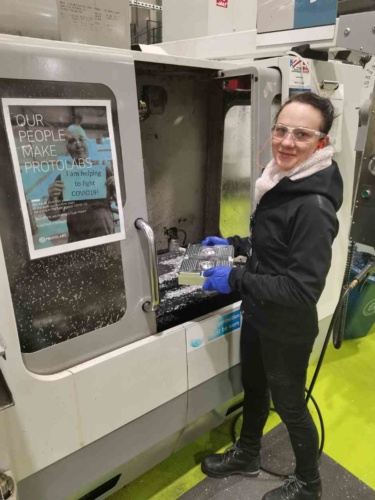
This removes potential issues around social distancing or cross contamination, but it also significantly reduces the time it takes to receive the parts.
So how does it work? As an e-commerce business, our automated quoting system receives the CAD uploads before quickly reviewing and emailing an interactive quote with real time pricing and design analysis.
We have teams of Application Engineers providing technical expertise based on the customer’s own specific requirements. They’ll work with the client through any required and recommended changes to the CAD models, communicating solutions and ensuring the successful conclusion of the designs.
Our proprietary software then translates the CAD models into instructions for our high-speed manufacturing equipment, where video displays allow workers to see real-time information on job queues, set-up requirements, production, and quality metrics.
It’s a closed-loop system that requires less human intervention in production, but more support from our design analysis function. This reduces manufacturing costs, increases throughput and reduces customer contact.
What key lessons has your organisation learned from this process?
BW: This project so far has exemplified how teamwork, commitment and flexibility from people both inside and outside of the organisation has enabled us to deliver a huge project in a short amount of time.
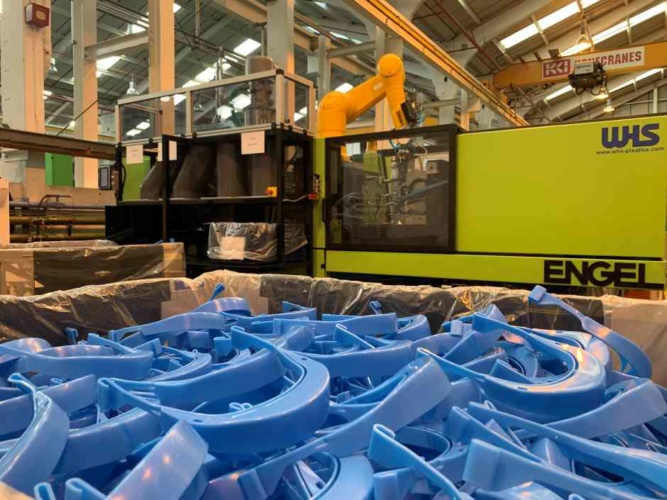
For a large business like Jaguar Land Rover, industrialising the process was a more efficient way to make a large volume of visors – but this doesn’t mean that people with Additive Manufacturing capability should stop printing. In fact, if there are any companies who would like to join us in making these visors for medical professionals, they can visit our website and download the 3D-printed CAD designs. We hope that by providing these files for download, many more companies will be inspired to use their 3D-printing facilities to print vital PPE equipment for our key workers. The ready-to-print files can be downloaded here.
MS: This challenge has highlighted the tremendous capabilities that we have within the UK to tackle complex engineering problems. The depth of capability and capacity within our aerospace and automotive sectors, the specialist knowledge of our medical devices sector, and the incredible agility and technical competence of the Formula 1 teams, have all come to the fore.
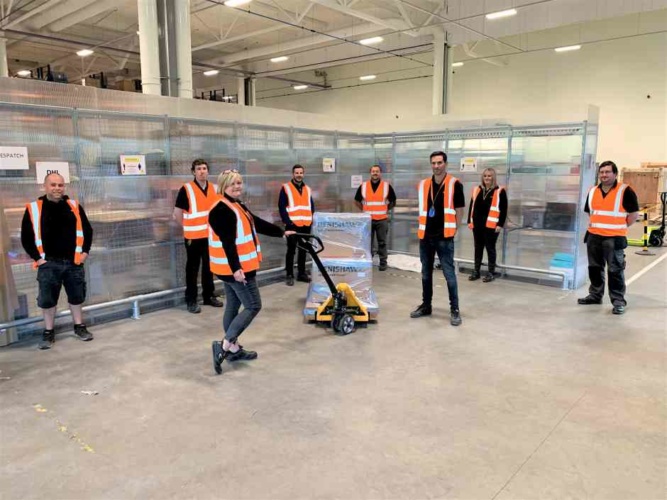
Some weaknesses in our national capability have also been exposed, however, such as our almost total dependence on overseas sources for electronics and many specialist components.
Perhaps the biggest success is how UK industry has pulled together in this time of need in a way that offers great hope for our industrial future.
LB: The appetite for digital manufacturing has been growing exponentially, but I think the experiences many industries have had during this period could accelerate the adoption of these processes even more when the economy returns to some form of normality.
But we have learned that our approach to manufacturing can, with the required safety measures in place, withstand a global pandemic and maintain productivity. A digital end-to-end process, as well as clear communication to employees, customers and supply chains, are vital elements in this success.
Throughout this pandemic we made sure all of our staff were on board with our plans to stay open as a critical supplier and this meant understanding their views and how we could create a working environment where they felt safe whilst allowing them to do their jobs.
This was achieved by holding regular consultations and briefings with employers and implementing processes that were jointly agreed on.
The Engineer is delighted to be part of the #EngineeringHeroes campaign, an initiative launched in collaboration with our sister engineering titles at MA Business to celebrate UK engineering’s inspiring response to the Covid-19 crisis. Visit the campaign website to find out more.











Fusion inches closer as ITER completes magnet system
I believe the purpose of ITER isn't to make usable power, it is a research project which will be used to design the first generation of actual...